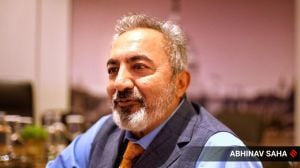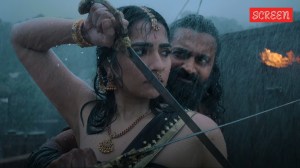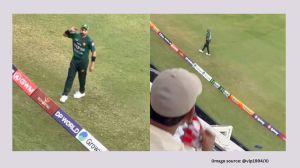Staging on a screen near you
Stage productions taking place at National Theatre,London,are now screened live in India. Delhi gets ready for a screening in September.
It was 4 pm in London on a spring afternoon,when the citys elite gathered at National Theatre to attend Oscar-winning director Danny Boyles adaptation of Frankenstein,the spine-chilling,archetypical novella by Mary Shelley. Starring theatre actor Johnny Lee Miller as the demented idealist,Victor Frankenstein,the doctor who brings alive a monster made of grave-robbed body parts,played by actor Benedict Cumberbatch,the production got a standing ovation. The play received a similar applause in 19 other countries,including Mumbais National Centre for Performing Arts,where it was screened in June.
This was the first time in the history of Indian theatre that a foreign play was screened live at NCPA with the help of various cameras,satellite transmission and high-definition screening. It was a sell-out run,seen by nearly one lakh people world over. Indias response was brilliant. We filmed it cinematically,recreating a live experience for the audience. NCPA has now invested in the necessary equipment required to screen live, says David Sebel,director of National Theatre,London,who launched the concept of National Theatre Live in 2009,with Jean Racines dramatic tragedy,Phedre,that starred Academy Award-winning actress Helen Mirren.
After the success of Frankenstein,National Theatre is also screened Russian playwright Anton Chekovs last play,The Cherry Orchard,at NCPA,on July 30. Directed by Howard Davies,the play is based on an adaptation by Andrew Upton and attempted to depict Russia of the 1940s.
Later this year,NCPA will help National Theatre organise similar screenings at Delhis Kamani auditorium,Kolkata and Bangalore. The key to having a successful screening is the technology involved in the projection and sound. NCPA has installed state-of-the-art equipment that allows for startling and realistic effects allied with crystal clear sound, says Khushroo Santook,director of NCPA,about the Bowers and Wilkins equipment that is imported,but is supplied locally. Similar equipment will be erected in Delhis Kamani auditorium,when the plays are screened,starting September.
We were attracted to the concept because it recreated the live,shared experience. Audience in India watched the play with the theatre audience in London and reacted like one, says Santook. But even though the audience seems to like what they see now,according to Sebel,there is work being done,to make the visual presentation more dynamic than mere cameras pointed at the stage. As for the audience in London,that comes for the broadcast,they pay a reduced ticket price and are aware that cameras will be present. This allows us to shoot it in a dynamic way,taking you to the best seats in the house,using tracking shots and even a crane, says Sebel,pointing out that eight cameras are erected at National Theatre to broadcast the play.
Coming up next from National Theatre is a tweaked version of Carlo Goldonis classic comedy The Servant Of Two Masters,which will be staged as One Man,Two Guvnars by the National Theatre cast. Another screening will be held for the legendary British dramatist Arnold Weskers The Kitchen .
In addition,NCPA is also negotiating with the Royal Opera House and the Metropolitan Opera in New York to screen live musical performances. The only possible deterrent could be the weather. It has been smooth so far,but since it is a satellite transmission,we are always worried about the weather, says Sebel.
Photos





- 01
- 02
- 03
- 04
- 05


























